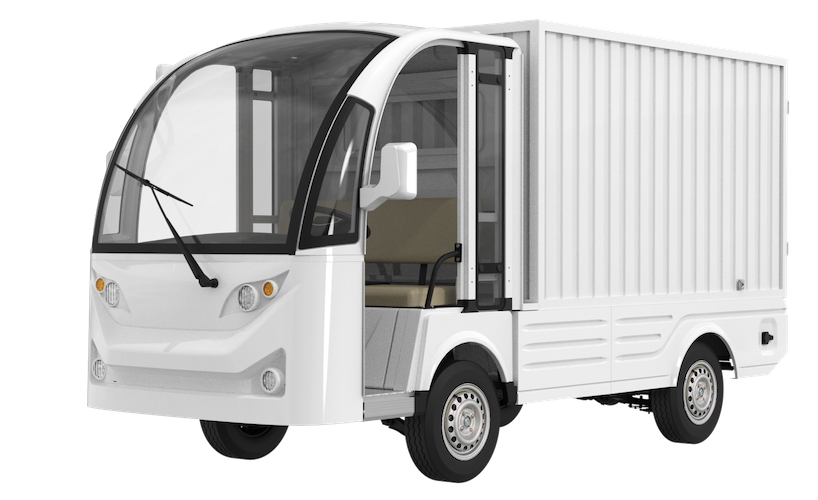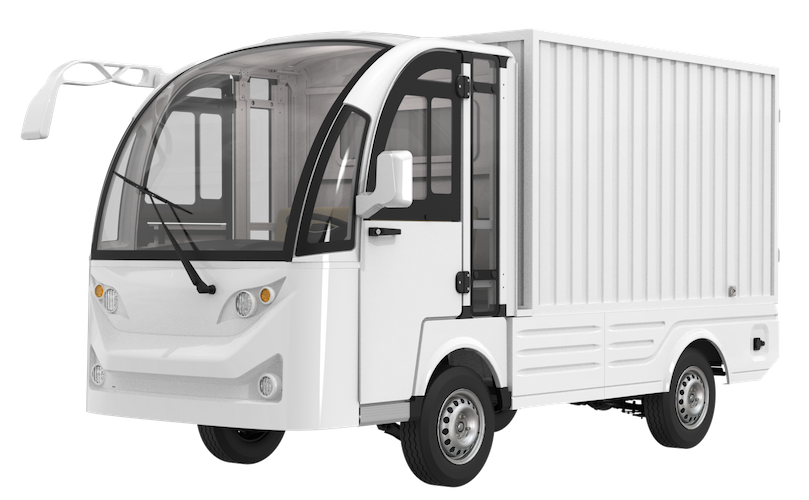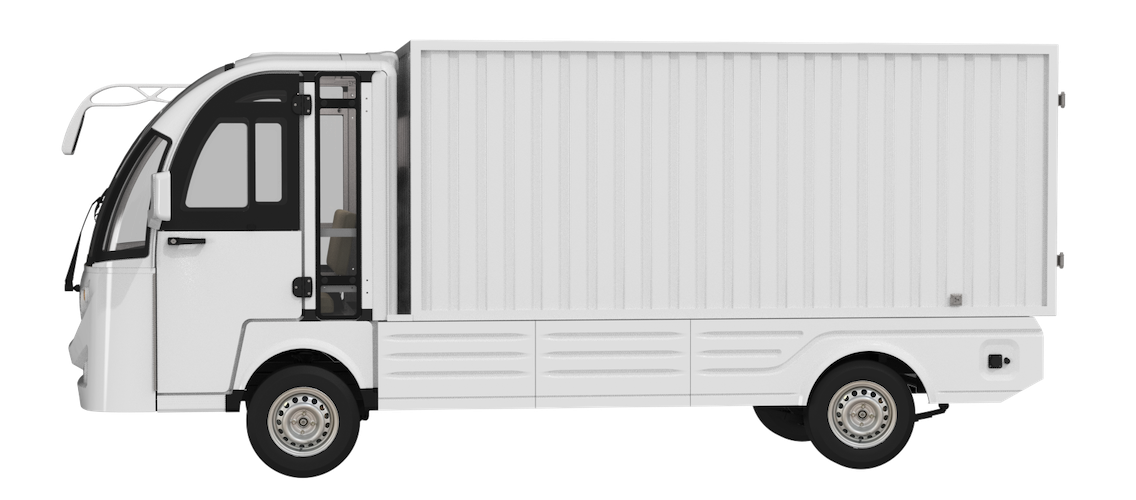Content Menu
● Overview of the Indian Electric Cargo Vehicle Market
● Leading Electric Cargo Vehicle Manufacturers and Suppliers in India
>> Mahindra Electric Mobility
>> Tata Motors
>> Piaggio Vehicles
>> Euler Motors
>> Omega Seiki Mobility
>> Atul Auto
>> Altigreen
>> Montra Electric
● Types of Electric Cargo Vehicles Available
>> Three-Wheeler Cargo Vehicles
>> Mini Electric Trucks
>> Heavy-Duty Electric Trucks
>> Electric Cargo Rickshaws
● Key Features and Innovations
>> Advanced Battery Technology
>> Telematics and Fleet Management
>> Modular and Customizable Designs
>> Enhanced Safety Features
>> Cost Efficiency and Sustainability
● Market Trends and Growth Drivers
>> Government Incentives and Policies
>> E-commerce Boom
>> Urbanization and Pollution Control
>> Corporate Sustainability Initiatives
>> Technological Advancements
● Challenges Facing the Industry
>> Charging Infrastructure
>> High Initial Costs
>> Range Limitations
>> Regulatory Variability
>> Battery Lifecycle and Disposal
● Future Prospects and Opportunities
● Conclusion
● Frequently Asked Questions
>> 1. What are the main types of electric cargo vehicles available in India?
>> 2. Which companies are the top Electric Cargo Vehicle Manufacturers and Suppliers in India?
>> 3. What incentives are available for purchasing electric cargo vehicles in India?
>> 4. What are the main challenges for Electric Cargo Vehicle Manufacturers and Suppliers in India?
>> 5. How is the future outlook for electric cargo vehicles in India?
India's logistics and transportation sector is undergoing a dramatic transformation, driven by the rapid adoption of electric cargo vehicles. As the world seeks sustainable mobility solutions, Electric Cargo Vehicle Manufacturers and Suppliers in India are emerging as global leaders, offering a diverse range of vehicles tailored for urban deliveries, industrial logistics, and last-mile connectivity. This comprehensive article explores the landscape of electric cargo vehicles in India, highlighting top manufacturers, market trends, technological advancements, and the future outlook for this dynamic industry.

Overview of the Indian Electric Cargo Vehicle Market
India's electric vehicle (EV) market is witnessing exponential growth, particularly in the commercial and cargo segments. While passenger EV sales have seen fluctuations, the demand for electric cargo vehicles—especially three-wheelers and light commercial vehicles—has surged. This growth is fueled by government incentives, rising fuel costs, and the need for eco-friendly logistics solutions.
Electric Cargo Vehicle Manufacturers and Suppliers are responding with innovative products that cater to the unique demands of Indian roads and businesses. The adoption rate of electric three-wheeler cargo vehicles has soared, with nearly half of all sales in this segment now electric. This trend is expected to continue as battery technology improves and charging infrastructure expands.
The Indian market is also witnessing a shift in consumer behavior, with businesses increasingly prioritizing sustainability and operational efficiency. This shift is encouraging manufacturers and suppliers to develop vehicles that not only reduce carbon emissions but also offer enhanced performance, durability, and cost-effectiveness.
Leading Electric Cargo Vehicle Manufacturers and Suppliers in India
India boasts a vibrant ecosystem of Electric Cargo Vehicle Manufacturers and Suppliers, ranging from established automotive giants to agile startups. These companies are innovating rapidly to meet the diverse needs of the market.
Mahindra Electric Mobility
Mahindra Electric Mobility is a pioneer in India's electric mobility space, offering a range of electric cargo vehicles such as the Mahindra Treo Zor and Mahindra Zor Grand. These vehicles are known for their reliability, robust build, and extensive service network. Mahindra's commitment to sustainability and innovation has made it a trusted name for businesses seeking dependable electric cargo solutions.
Tata Motors
Tata Motors has made significant strides with models like the Tata Ace EV, catering to urban and rural logistics needs. Their vehicles offer impressive payload capacity, range, and advanced telematics, making them ideal for small and medium enterprises. Tata's extensive dealer network and after-sales service contribute to its strong market presence.
Piaggio Vehicles
Piaggio's Ape Electric series has become synonymous with efficient last-mile delivery. The company focuses on three-wheeler cargo vehicles, offering durability and cost-effectiveness. Piaggio's vehicles are widely used in urban centers for their maneuverability and low operating costs.
Euler Motors
Euler Motors specializes in high-load electric cargo three-wheelers, designed for urban logistics and e-commerce deliveries. Their vehicles feature advanced battery management systems and telematics, enabling fleet operators to optimize routes and reduce downtime. Euler's focus on technology-driven solutions positions it as a key player in the evolving electric cargo vehicle landscape.
Omega Seiki Mobility
Omega Seiki Mobility is known for its Rage+ series, offering versatile electric cargo vehicles for various applications. The company emphasizes sustainability and innovation in its designs, including modular vehicle platforms that can be customized for different cargo types. Omega Seiki's vehicles are gaining popularity among logistics companies looking for scalable electric solutions.
Atul Auto
Atul Auto provides a range of electric three-wheelers for cargo and passenger use, focusing on affordability and low operating costs. Their vehicles are designed to meet the needs of small businesses and local delivery services, offering reliable performance with minimal maintenance.
Altigreen
Altigreen's neEV series is designed for heavy-duty cargo applications, combining high torque, long range, and rapid charging capabilities. Altigreen is also investing in battery swapping technology to address range anxiety and improve vehicle uptime, making it a forward-thinking supplier in the electric cargo vehicle segment.
Montra Electric
Montra Electric, a Murugappa group venture, is making waves with its commercial electric trucks and three-wheelers, targeting both urban and industrial logistics. Montra focuses on building rugged, high-performance vehicles with advanced safety features and telematics, appealing to fleet operators looking for reliable electric alternatives.
Types of Electric Cargo Vehicles Available
Electric Cargo Vehicle Manufacturers and Suppliers in India offer a wide variety of models to suit different business needs. These vehicles vary in size, payload capacity, and application, enabling businesses to choose the best fit for their logistics operations.
Three-Wheeler Cargo Vehicles
Three-wheeler electric cargo vehicles are the backbone of last-mile delivery in India. They typically carry payloads ranging from 500 to 1000 kilograms and are ideal for navigating congested urban areas. Their compact size and agility make them perfect for e-commerce deliveries, food distribution, and small-scale logistics.
Mini Electric Trucks
Mini electric trucks provide higher payload capacity, usually between 500 and 2000 kilograms. These vehicles serve urban logistics, small businesses, and intra-city transport needs. They offer better range and speed compared to three-wheelers, making them suitable for slightly longer routes and heavier loads.
Heavy-Duty Electric Trucks
Heavy-duty electric trucks are designed for industrial logistics, mining, and construction applications. With payload capacities exceeding 2000 kilograms, these vehicles are robust and equipped with powerful electric drivetrains. They are still emerging in the Indian market but hold significant potential for sectors aiming to reduce their carbon footprint.
Electric Cargo Rickshaws
Electric cargo rickshaws are smaller vehicles with payload capacities of 300 to 800 kilograms. They are widely used for local deliveries, small retail distribution, and intra-neighborhood logistics. Their affordability and ease of use make them popular among small entrepreneurs.

Key Features and Innovations
Electric Cargo Vehicle Manufacturers and Suppliers in India are pushing the boundaries of technology and design to meet market demands. The following features have become standard or are rapidly evolving:
Advanced Battery Technology
Most manufacturers use lithium-ion or lithium iron phosphate (LFP) batteries, which offer longer range, faster charging times, and enhanced safety compared to older battery types. Battery management systems (BMS) monitor health and optimize performance, ensuring reliability.
Telematics and Fleet Management
Modern electric cargo vehicles come equipped with telematics systems that provide real-time tracking, vehicle diagnostics, and driver behavior monitoring. These features help fleet operators optimize routes, reduce fuel consumption, and improve overall efficiency.
Modular and Customizable Designs
Many manufacturers offer modular vehicle platforms that can be customized for specific cargo types, including refrigerated units for perishable goods, closed containers, or flatbeds. This flexibility allows businesses to tailor vehicles to their unique logistics needs.
Enhanced Safety Features
Safety is a growing priority, with features such as regenerative braking, anti-lock braking systems (ABS), ergonomic cabins, and reinforced chassis becoming common. These improvements contribute to driver comfort and reduce accident risks.
Cost Efficiency and Sustainability
Electric cargo vehicles significantly reduce operating costs due to lower energy expenses and minimal maintenance requirements. Additionally, zero tailpipe emissions contribute to improved air quality, aligning with corporate sustainability goals and regulatory requirements.
Market Trends and Growth Drivers
Several factors are propelling the growth of Electric Cargo Vehicle Manufacturers and Suppliers in India:
Government Incentives and Policies
The Indian government has introduced schemes such as FAME II (Faster Adoption and Manufacturing of Hybrid and Electric Vehicles) that provide subsidies and tax benefits to electric vehicle buyers. These policies lower the upfront cost and encourage fleet electrification.
E-commerce Boom
The rapid expansion of e-commerce has dramatically increased demand for efficient last-mile delivery solutions. Electric cargo vehicles, especially three-wheelers, are ideally suited for this purpose due to their maneuverability and low operating costs.
Urbanization and Pollution Control
Growing urban populations and increasing pollution levels have created a pressing need for clean transportation solutions. Electric cargo vehicles help reduce noise and air pollution, making them attractive to city planners and businesses alike.
Corporate Sustainability Initiatives
Many companies are adopting electric fleets to meet their environmental, social, and governance (ESG) goals. This trend is driving demand for electric cargo vehicles that can deliver goods sustainably.
Technological Advancements
Improvements in battery technology, charging infrastructure, and vehicle design continue to enhance the performance and appeal of electric cargo vehicles. Innovations such as battery swapping and fast charging are addressing range anxiety and downtime concerns.
Challenges Facing the Industry
Despite rapid growth, Electric Cargo Vehicle Manufacturers and Suppliers face several challenges:
Charging Infrastructure
The availability of widespread, reliable, and fast charging stations remains limited, especially in smaller towns and rural areas. This infrastructure gap can hinder the adoption of electric cargo vehicles for longer routes.
High Initial Costs
Although operating costs are lower, the upfront price of electric cargo vehicles remains higher than conventional diesel or petrol vehicles, which can be a barrier for small businesses.
Range Limitations
Electric cargo vehicles, particularly heavy-duty models, still face range limitations that affect their suitability for long-distance or heavy-load applications. Battery technology is improving but has yet to fully overcome this challenge.
Regulatory Variability
Different states in India have varying policies, incentives, and regulations related to electric vehicles. This inconsistency can complicate procurement and fleet management for businesses operating across multiple regions.
Battery Lifecycle and Disposal
Managing battery lifecycle, recycling, and disposal is an emerging concern. Manufacturers and suppliers are investing in sustainable battery management practices to minimize environmental impact.
Future Prospects and Opportunities
The future for Electric Cargo Vehicle Manufacturers and Suppliers in India is bright. With advancements in battery technology, expansion of charging infrastructure, and continued government support, the market is set to double in the coming years. New players are entering the space, and existing manufacturers are scaling up production to meet rising demand.
Key opportunities include:
- Export Potential: Indian manufacturers are exploring export markets in Asia, Africa, and Latin America, where demand for affordable electric cargo vehicles is growing.
- Fleet Electrification: Large logistics companies and e-commerce giants are increasingly electrifying their delivery fleets, creating bulk demand.
- Technological Partnerships: Collaborations between manufacturers, battery suppliers, and technology firms are accelerating innovation.
- Battery Swapping and Charging Solutions: New business models around battery swapping and shared charging infrastructure are emerging to address operational challenges.
- Integration with Smart Cities: Electric cargo vehicles will play a crucial role in smart city initiatives focused on sustainable urban mobility.
Conclusion
Electric Cargo Vehicle Manufacturers and Suppliers in India are driving a green revolution in logistics and transportation. Their innovative products, commitment to sustainability, and adaptability to Indian conditions position them as leaders in the global EV landscape. As the industry continues to evolve, collaboration between manufacturers, suppliers, policymakers, and end-users will be key to unlocking the full potential of electric cargo mobility in India. The combined efforts will not only reduce the carbon footprint of the logistics sector but also enhance efficiency and profitability for businesses across the country.

Frequently Asked Questions
1. What are the main types of electric cargo vehicles available in India?
Electric Cargo Vehicle Manufacturers and Suppliers offer three-wheeler cargo vehicles, mini electric trucks, heavy-duty electric trucks, and cargo rickshaws. Each type serves different payload capacities and applications, from last-mile delivery to industrial logistics.
2. Which companies are the top Electric Cargo Vehicle Manufacturers and Suppliers in India?
Leading names include Mahindra Electric Mobility, Tata Motors, Piaggio Vehicles, Euler Motors, Omega Seiki Mobility, Atul Auto, Altigreen, and Montra Electric. These companies provide a wide range of vehicles for various business needs.
3. What incentives are available for purchasing electric cargo vehicles in India?
The Indian government offers subsidies, tax benefits, and incentives under schemes like FAME II to promote the adoption of electric vehicles, making them more affordable for businesses and fleet operators.
4. What are the main challenges for Electric Cargo Vehicle Manufacturers and Suppliers in India?
Key challenges include limited charging infrastructure, high battery costs, range limitations for heavy-duty use, and regulatory differences across states. However, ongoing investments and policy support are addressing these issues.
5. How is the future outlook for electric cargo vehicles in India?
The outlook is highly positive, with the market expected to double in the next few years. Technological advancements, increased government support, and rising demand from e-commerce and logistics sectors are driving growth for Electric Cargo Vehicle Manufacturers and Suppliers.




















































